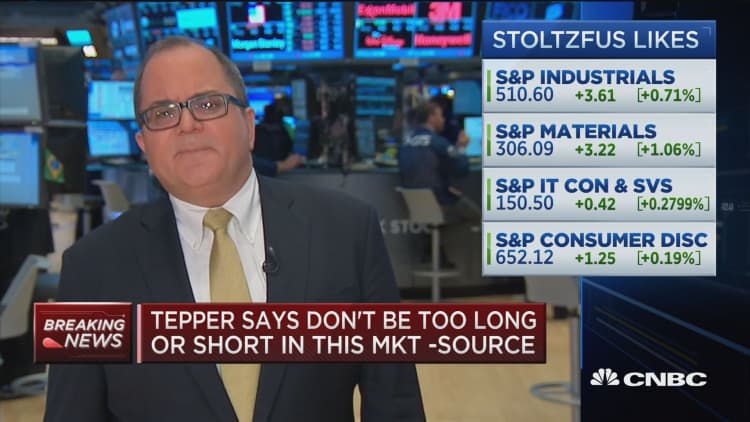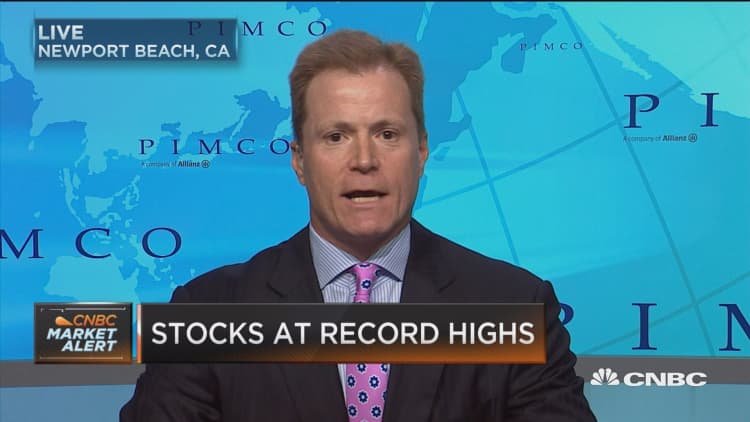
As the U.S. stock market moved higher Monday, experts differed on the right move for investors to make.
For John Stoltzfus, chief investment strategist at Oppenheimer Asset Management, cyclicals are the place to be, noting that defensives have been overvalued for quite a while.
"The economy is doing better, the Federal Reserve is showing remarkable sensitivity — we expect they're going to raise once this year just to keep animal spirits in check, and that will probably happen in December — so we want to own cyclicals," he said in an interview with CNBC's "Power Lunch."
However, Pimco's global credit chief investment officer Mark Kiesel likes U.S. corporate bonds.
"This has really been the year of credit, and credit has outperformed equities," he told "Power Lunch."
"Corporate bonds, even today at current valuations, can deliver 3 to 4 percent for investment grade corporate bonds in the United States and roughly 5 to 6 percent for high yield bonds," he said.

He believes foreign investors will move into corporate bonds in part because hedging costs on U.S. Treasurys have increased significantly.
U.S. consumers are also the healthiest they've been in 10 years, he noted, with rising wages, a declining unemployment rate and bank loans growing.
"The recession risk probably is lower than what the market's priced in, at least in the United States, and therefore this income coming into credit will continue," Kiesel said.
Meanwhile, JPMorgan Funds chief global strategist David Kelly thinks the U.S. stock market can still go up in the short run.
However, "over the next five years I actually prefer some international markets to the U.S. equity market right now. We've come a long way," he told "Power Lunch."
While he can't think of a single reason why the Federal Reserve shouldn't raise interest rates in September, he doesn't know if it will because it has been very dovish.
"The problem is that underlying inflation pressures are rising and the labor market is tightening. And you could see a pickup in inflation next year," he said. "If the Fed finally loses its nerve and finally begins to raise rates, you could have a bit of a regime change here. I think the U.S. economy is going to gradually overheat here."


